Everyone hates traffic, and it’s no secret that Los Angeles has some of the worst commutes in the country. Drivers in the LA area waste an average of 62 hours – more than an entire work week – in traffic every year, making it the sixth most congested city in the country.
To cope with the taxing traffic, some local startups aren’t thinking of ways to revitalize the county’s aging and unfinished freeway system: instead, they’re looking to the skies.
Right now, the idea of zipping around Southern California in a compact air taxi seems like a Philip K. Dick pipe dream. But there’s a handful of startups in the LA area eagerly engineering electric aircrafts that they say could be operational as soon as 2024.
Some of these startups have found powerful, well-funded allies in the ground transportation sector, like Archer Aviation which is backed by United Airlines, or Joby Aviation, funded in part by Uber. Others are supported by municipalities or nonprofits like the Urban Movements Lab, which LA Mayor Eric Garcetti launched in 2020 to hasten development on new transportation tech.
Here’s dot.LA’s guide to the startups you need to know that are working on air taxis or autonomous flight in Los Angeles.
Overair
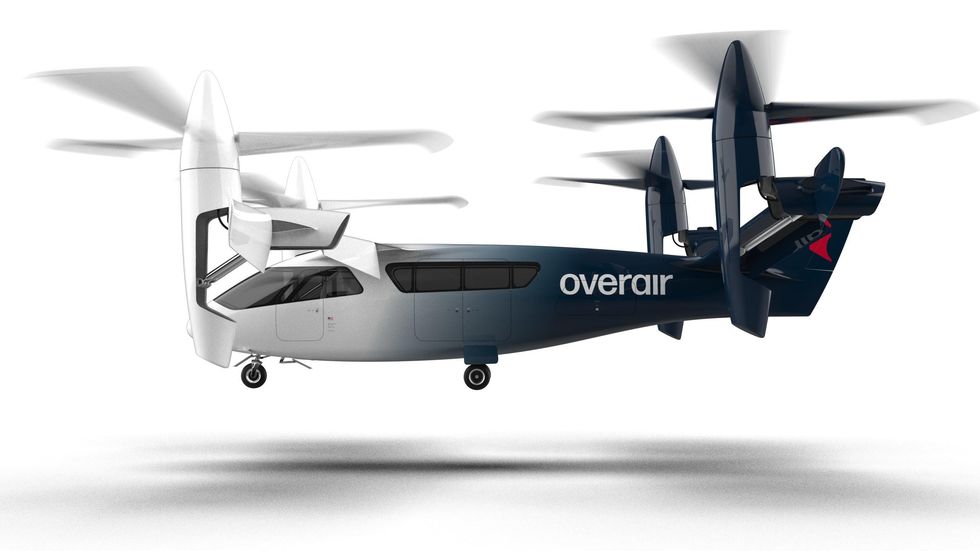 Overair Raises $145M To Fly Its Electric Aircraft PrototypeImage courtesy of Overair
Overair Raises $145M To Fly Its Electric Aircraft PrototypeImage courtesy of OverairLocation: Santa Ana
Founded: 2019
Raised to date: $170 million
Overair raised a $145 million round last month to accelerate the development of its electric plane called Butterfly, which is a vertical take-off and landing vehicle that could see its first test flight by the second half of 2023. The company’s backed by a South Korean conglomerate called Hanwha and was spun out of a Lake-forest based military aerospace contractor called Karem Aircraft in 2020. Originally, the company made tech capable of dropping Navy SEALs into combat zones.
Archer Aviation
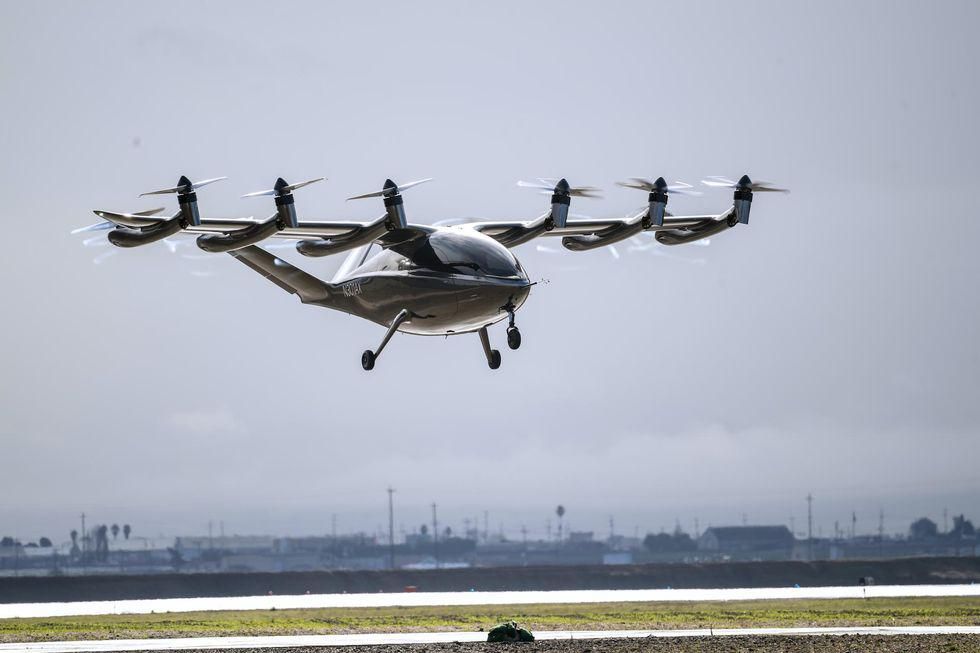
Courtesy Archer Aviation
Location: Santa Clara
Raised to date: $2.18 billion
Archer went public in September 2021, raising nearly $858 million in a SPAC deal that made the startup a unicorn with a $1.7 billion post-deal valuation. Based in Santa Clara, Archer thinks its Maker aircraft can begin charting courses over Los Angeles at up to 150 miles per hour within the next two years. The company completed its first hover test flight last December and is gearing up for another test flight this week.
Wisk Aero
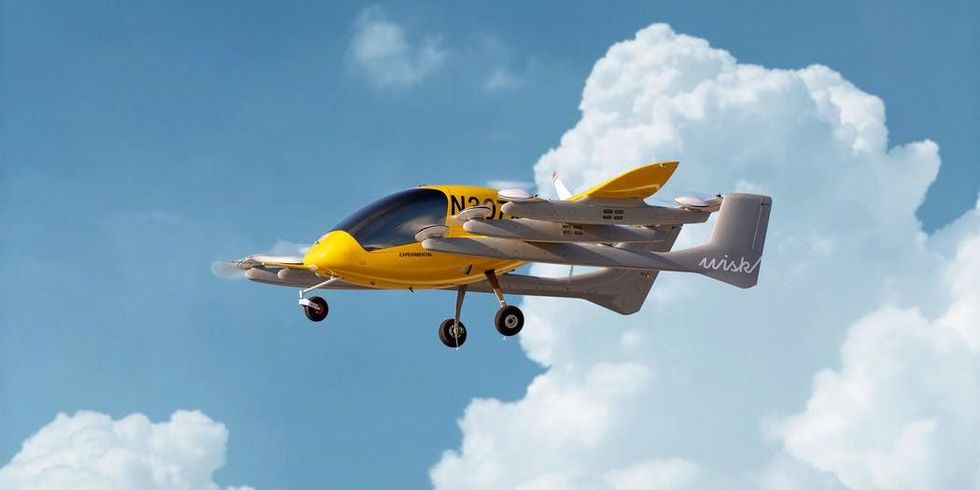 Wisk AeroImage courtesy of Wisk Aero
Wisk AeroImage courtesy of Wisk AeroLocation: Mountain View
Founded: 2019
Raised to date: $450 million
While it’s not headquartered in Los Angeles, it's worth mentioning Wisk since it’s working extensively in Long Beach. The Silicon Valley-based company began working with the city’s Office of Economic Research in February to survey local businesses, government agencies and community leaders to gauge their interest in using air taxis in and around Long Beach. Wisk spokesman Chris Brown told dot.LA the company’s air taxis wouldn’t be up and running for another decade, at least, but said the startup’s already completed over 1,500 test flights.
Joby Aviation
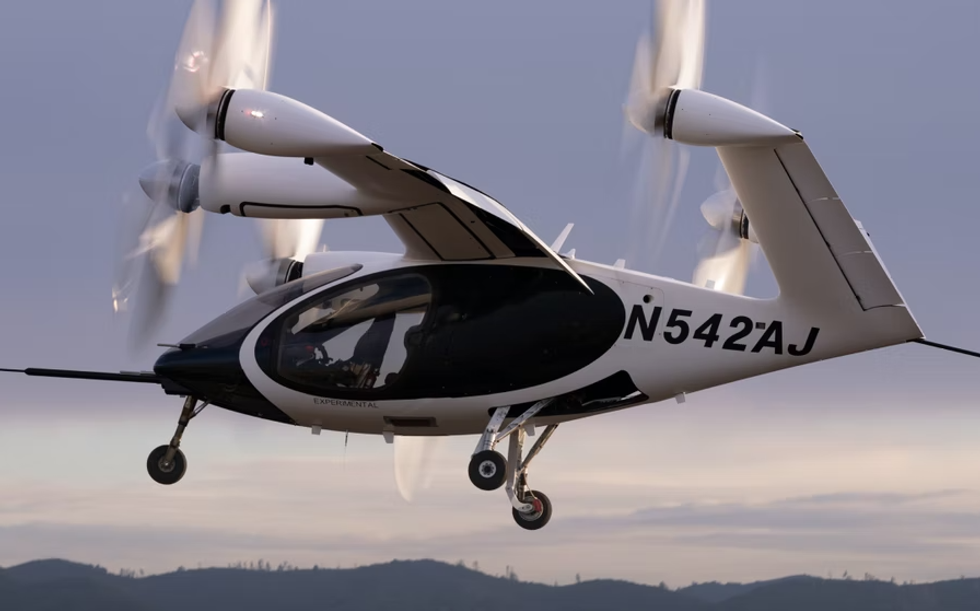 Credit: Joby Aviation
Credit: Joby AviationLocation: Santa Cruz
Founded: 2009
Raised to date: $1.64 billion
One of the older firms on this list, Joby is working to make an electric aircraft with the goal of taking passengers on flights within the next two years. Joby claims its vehicle can travel 150 miles on a single charge and will be capable of vertical take-off and landing, which crucially could reduce the company’s need to build expensive runways. Following backing from Uber, Toyota, Intel and JetBlue, Joby went public in August 2021 which led it to quickly surpass unicorn status at a $4.5 billion valuation.
Odys Aviation
 Credit: Odys Aviation
Credit: Odys AviationLocation: Long Beach
Founded: 2019
Raised to date: $15.9 million
Long Beach-based Odys is building vertical take-off and landing electric planes and is aiming to create a network of local city helipads and airports that can host its vertiports. Odys was founded by James Dorris, a former engineer at Virgin Hyperloop, and Axel Radermacher, a former production manager at Karma Automotive, in 2019. The startup wants to cut door-to-door travel times in half by ferrying people across town in air taxis. It’s backed by Hyperloop One co-founder Brogan Bambrogan.
Skyryse
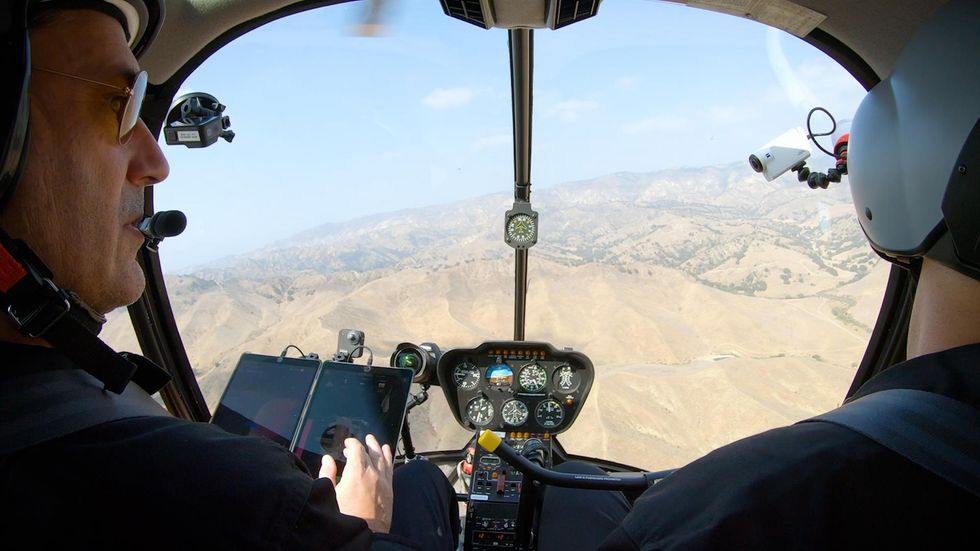 Make Flying Simple: Skyryse’s FlightOS Gives Pilots Control With Just a Tablet
Make Flying Simple: Skyryse’s FlightOS Gives Pilots Control With Just a TabletLocation: Hawthorne
Founded: 2016
Raised to date: $240.5 million
Skyryse is working on a software that can simplify flight controls and allow people (with the proper pilot creds, of course) to control aircraft with just an iPad using its FlightOS software. The startup launched in 2016 and in 2019 it demonstrated its ability to use the tech to program a helicopter to fly itself. In April, the company inked a deal with one of its investors, the medical transport company Air Methods, to retrofit 400 of the company’s single-engine choppers and fixed-wing airplanes with FlightOS. Skyryse courted engineers from Boeing, Ford, JetBlue and SpaceX, and hired new COO Justin Ryan and CFO Stephen Koo earlier this month.
- Air Taxis Could Arrive in Long Beach in the Next Decade - dot.LA ›
- Los Angeles' Hottest Startups of 2022 - dot.LA ›
- Delta Invests $60 Million In Joby Aviation's Electric Planes - dot.LA ›
- Joby Aviation Lands $180M, Fourward Ventures Snags $50M - dot.LA ›
- How Joby Aviation Plans to Take Over the Air Taxi Space - dot.LA ›

